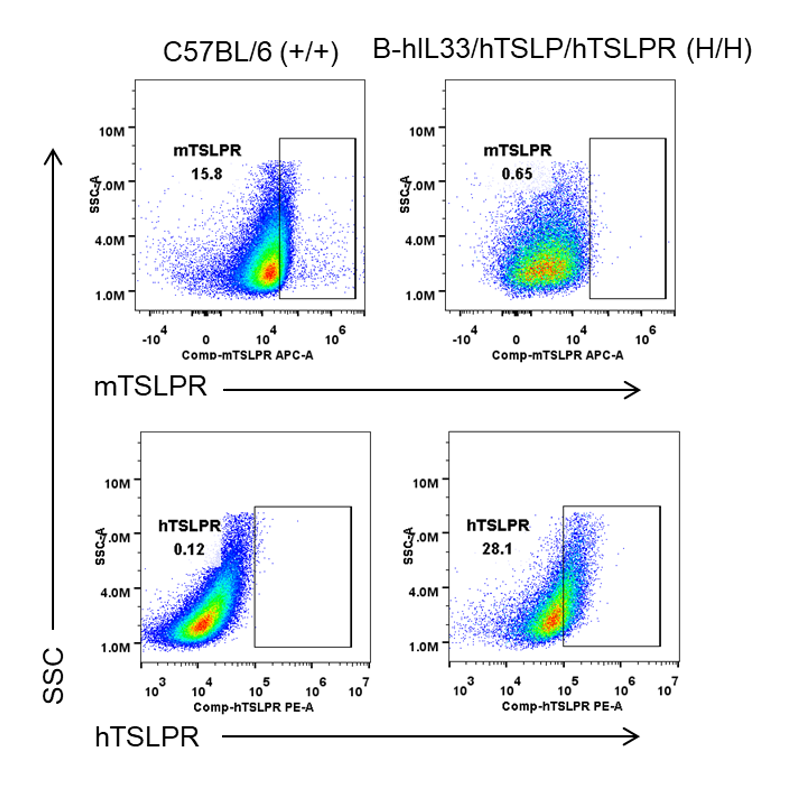Basic Information
-
Targeting strategy

-
Gene targeting strategy for B-hIL33/hTSLP/hTSLPR mice.
- The exons 1-5 of mouse Tslp gene that encode the full-length protein were replaced by human TSLP exons 1-4 in B-hIL33/hTSLP/hTSLPR mice.
- The signal peptide, extracellular and transmembrane region of human TSLPR gene and the cytoplasmic region of mouse Tslpr gene were constructed into a chimeric CDS vector and inserted into the exon 2 of mouse Tslpr gene. The targeted mice will express the chimeric TSLPR protein, while mouse TSLPR will no longer express.
- The exons 2-8 of mouse Il33 gene were replaced by human IL33 exons 2-8 in B-hIL33/hTSLP/hTSLPR mice.
-
Protein expression analysis-IL33

-

Strain specific IL33 and TSLP expression analysis in homozygous B-hIL33/hTSLP/hTSLPR mice by ELISA. Calcipotriol (MC903) was dissolved in ethanol and topically applied on ears of either wild type C57BL/6 mice (+/+) or homozygous B-hIL33/hTSLP/hTSLPR mice (H/H) for 7 days. n=3. Ear grinding supernatant from the two mice was analyzed by ELISA. Mouse IL33 and TSLP were only detectable in wild type C57BL/6 mice. Human IL33 and TSLP were exclusively detectable in homozygous B-hIL33/hTSLP/hTSLPR mice but not in wild type mice. ND: not detectable.
-
Protein expression analysis-TSLPR in macrophages

-

Strain specific TSLPR expression analysis in homozygous B-hIL33/hTSLP/hTSLPR mice by flow cytometry. Bone marrow was collected from wild type C57BL/6 mice (+/+) and homozygous B-hIL33/hTSLP/hTSLPR mice (H/H), Dendritic cells were induced from bone marrow cells in culture and analyzed by flow cytometry with species-specific anti-TSLPR antibody. Mouse TSLPR was only detectable in wild type C57BL/6 mice. Human TSLPR was only detectable in homozygous B-hIL33/hTSLP/hTSLPR mice but not in wild type mice.


